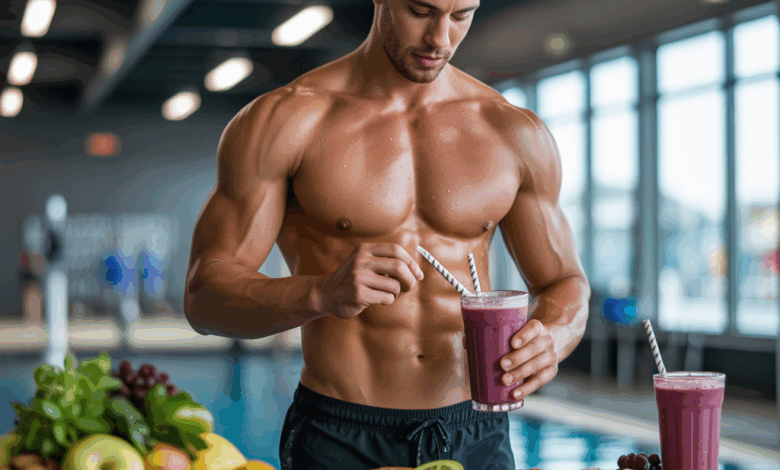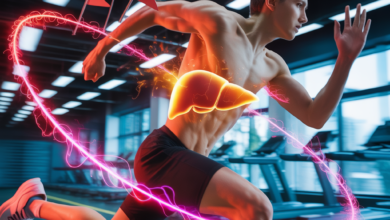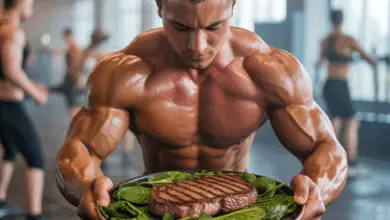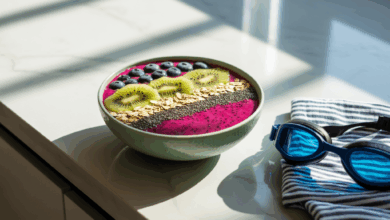What to Eat Before Swim Practice: Fuel Your Best Performance

Have you ever jumped into the pool feeling sluggish or running out of steam halfway through your swim practice? If so, you’re not alone. What you eat before swim practice can make all the difference between powering through your sets or struggling to catch your breath. Whether you’re a competitive swimmer or just looking to improve your fitness, fueling your body right is key to success in the pool.
In this guide, we’ll break down everything you need to know about what to eat before swim practice, including ideal meal timing, nutrient choices, and practical snack ideas. Plus, you’ll get actionable tips to optimize your swimming workouts and maintain a healthy lifestyle with ease.
Why Your Pre-Swim Nutrition Matters
Swimming is a full-body, high-intensity workout that demands significant energy from your muscles. Unlike some other workouts that rely mainly on aerobic or anaerobic energy systems, swimming challenges both. Your muscles need readily available fuel to perform efficiently and recover faster.
Eating the wrong foods or waiting too long to eat before practice can lead to low energy, cramping, dizziness, or even nausea. Conversely, the right pre-swim nutrition supports endurance, strength, and focus so you can hit every stroke with power and precision.
How Long Before Practice Should You Eat?
Timing your pre-swim meal is just as important as what you eat. Ideally, you want to eat a balanced meal 2 to 3 hours before swimming. This allows enough digestion time so you don’t feel heavy or bloated in the water.
If your swim practice is early in the morning or you can’t eat a full meal beforehand, small snacks 30 to 60 minutes prior can boost your energy without weighing you down.
Examples of Meal and Snack Timing
- 2–3 hours before: A balanced meal with carbohydrates, protein, and healthy fats.
- 30–60 minutes before: A light carbohydrate-rich snack that’s easy to digest.
- Hydration: Drink water throughout the day and sip small amounts before practice to stay hydrated.
What to Eat Before Swim Practice: Essential Nutrients to Focus On
The goal of pre-swim nutrition is to provide your body with sustained energy and support muscle function. Here’s what to prioritize:
Carbohydrates: Your Primary Energy Source
Carbs break down into glucose, supplying quick and efficient energy for your muscles. Choose complex carbs like whole grains, fruits, and vegetables that provide fiber and long-lasting fuel.
Protein: Repair and Recovery Support
Including moderate protein in your pre-swim meal helps repair muscle fibers and prepares your body for the workout ahead. Think lean options like chicken, turkey, tofu, eggs, or Greek yogurt.
Healthy Fats: Energy Without the Sluggishness
Small amounts of healthy fats, such as those from nuts, seeds, or avocado, can provide sustained energy but avoid high-fat meals immediately before swimming since they digest slower.
Hydration: The Hidden Performance Booster
Swimming may not feel sweaty, but you still lose fluids and electrolytes. Drinking water before and during swim practice—plus including hydrating foods like watermelon or cucumbers—helps maintain stamina.
Perfect Pre-Swim Meal Ideas
To make things easier, here are some tasty and practical meal and snack options tailored for swimmers:
Balanced Meals (2–3 Hours Before)
- Grilled chicken breast, quinoa, and steamed broccoli with a drizzle of olive oil
- Whole grain pasta with tomato sauce, lean ground turkey, and a side salad
- Oatmeal topped with banana slices, a spoonful of almond butter, and chia seeds
- Vegetable stir-fry with tofu and brown rice
Quick Pre-Swim Snacks (30–60 Minutes Before)
- Banana or apple with a teaspoon of natural peanut butter
- Low-fat Greek yogurt with a handful of berries
- Rice cakes topped with honey or avocado
- Energy bars made with oats and dried fruits (ensure they’re low in added sugars)
Additional Tips for Maximizing Your Swim Practice
- Warm up properly: Spend at least 10 minutes gradually increasing your heart rate with light swim drills or dynamic stretching to prep your muscles.
- Mix up your swim routines: Combine endurance sets, sprints, and technique drills to challenge your body and avoid plateaus.
- Monitor your hydration: Even mild dehydration can impair your swimming speed and focus.
- Rest and recover: Aim for at least 7–8 hours of sleep and consider post-swim nutrition to replenish your glycogen stores.
Real-World Example: How I Prepare for Swim Practice
As a health and fitness blogger and an occasional triathlete, I’ve learned the importance of pre-swim nutrition the hard way. For morning swim sessions, I usually have a small bowl of oatmeal with a sliced banana and a bit of honey about 1.5 hours before hitting the pool. It gives me enough carbs without feeling bloated. If practice is later in the day, a grilled chicken sandwich on whole wheat with spinach has me ready to swim strong for an hour or more.
Experiment with different foods and timing to find what works best for your body’s unique needs. Keeping a simple food journal can help track how different meals impact your swim performance.
Frequently Asked Questions About What to Eat Before Swim Practice
It’s best to avoid large, heavy meals right before swimming as they can cause discomfort, cramping, or sluggishness. Aim for a balanced meal 2–3 hours prior, and if you need to eat closer to practice, stick to small, easily digestible snacks.
Absolutely! Fruits like bananas, apples, or berries provide quick carbs and natural sugars that can boost your energy levels ahead of swim practice without weighing you down.
Hydration is crucial, even if you don’t feel sweaty while swimming. Drinking water throughout the day and sipping before practice helps maintain performance, prevent cramps, and keep your body balanced.
Conclusion: Fuel Up Right and Swim Your Best
Knowing what to eat before swim practice can transform how you feel during your workouts—from sluggish and tired to energized and focused. Prioritize balanced meals with plenty of complex carbohydrates, moderate protein, and healthy fats, and time your intake wisely to avoid discomfort in the pool.
Start experimenting with the meal ideas and tips shared here this week and notice the difference in your stamina and speed. If you’re ready to take your swim workouts further, check out our workout routines for swimmers and dive deeper into our nutrition guides to support your athletic journey.
Remember, fueling your body properly is a cornerstone of swim success—so eat smart, stay hydrated, and make every practice count!





